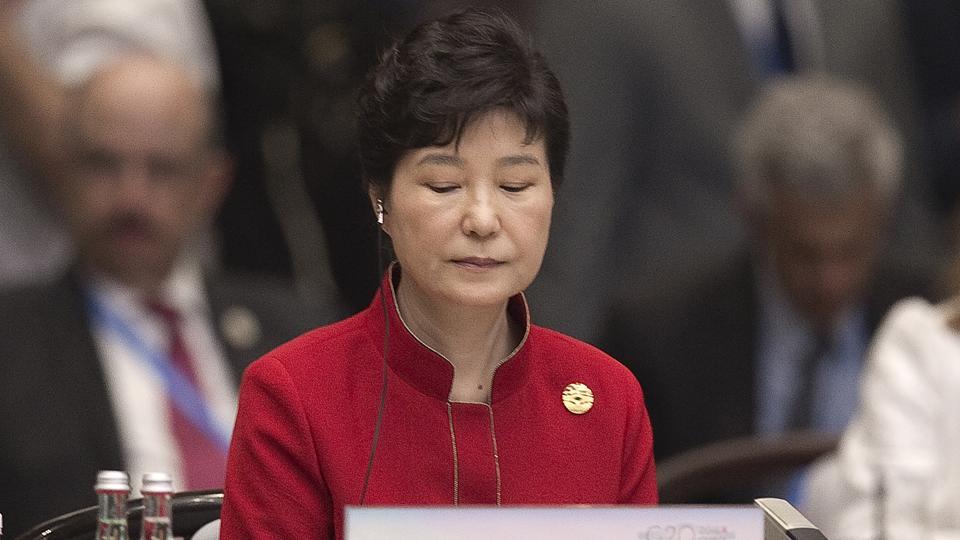South Korean President Impeached
May 23, 2017 | Expert Insights

On 31st march, South Korea’s former president, Park Geun-Hye was impeached due to corruption and extortion charges against her. Moon Jae-in assumed the post as the new president on 10th may 2017.
Why was Park impeached?
The impeachment of the former president was due a political scandal involving interventions by her aide, Choi Soon-Sil to the presidency. Choi did not have any official position in the government but she used Park’s position to seek donations from various business conglomerates like Samsung, Hyundai, SK group and Lotte for two foundations she controlled and Ms Park is alleged to be personally involved in instructing her to do so. There were also allegations of about Choi’s access to confidential government documents including information about ministerial candidates and North Korea. It was also suspected that Ms Park had sought political power to win the elections.
Scandals and involvements
Apart from the former president, the de facto head of Samsung Lee Jae-Yong has been charged of bribing the president and her aide. Mr Lee is accused of making payments amounting 43 billion to Choi’s family and to two foundations that she controlled. This was done to seek help from Ms Park to facilitate the transfer of ownership of Samsung in his name from his deceased father. The Seoul court is likely to issue an arrest warrant against him. His arrest would be a big initiative on South Korea’s part to fight corruption involving the countries powerful family controlled conglomerates known as chaebol.
The founder of the Lotte group Shin Kyuk-ho also has criminal charges against him for misappropriation of funds worth 280 billion. Hyundai also lines up with seven other top business leaders involved in the scandal.
Ms Park’s former senior secretary for policy coordination has been charged for abuse of authority and coercion. In the past as well there have been cases involving former military dictators imprisoned on corruption charges in 1990s.
South Korea’s leaders and business groups in the past as well have faced accusations of corruption during Park’s father, the dictator Park Chung-hee, who fostered the family run business empires in 1970s. The shipbuilding and steel industries are also facing difficulties and bank of Korea governor Lee Ju-yeol has cited record of household as a risk to financial stability Such accusations could erode public confidence from the nation’s industrial system.
It is expected that the current president, Moon Jae-in would lead a transparent government and fight corruption that is seen to be extensively present in South Korea. He is known to have protested against Park’s father in 1970s who ruled as the dictator for 15 years. Moon plans to fight corruption centred on chaebol, family controlled corporations suspected of forging misappropriate deals with the government. He has also pledged to put forth a plan that would create more than 800,000 public positions. He has also launched a campaign ‘National Interest First’ policy that would prioritize the country’s own interest ahead of the foreign allies like US.
Assessment
The South Korean government is seen to be lenient towards the business tycoons convicted of white collar crimes that could deepen public mistrust of the justice system and raise doubts among foreign investors. This could be a big risk for the industrial and judicial system of the country as it would shatter the public trust.
Accusations against conglomerates like Samsung and Hyundai could lead to a negative impact in the market in South Korea. However, South Korea has set a good example of a peaceful and quick impeachment process of the president once alleged with guilty charges, something that other countries could learn.








Comments